Differences
This shows you the differences between two versions of the page.
|
agenda [2019/06/14 15:39] plabaj [Tentative Program] |
agenda [2019/07/24 17:37] (current) plabaj [Gunnar Rätsch, PhD] |
||
|---|---|---|---|
| Line 1: | Line 1: | ||
| - | The scientific program includes keynotes by leading researchers in the field ([[agenda#Rita Colwell, PhD|Rita R. Colwell]] and [[agenda#Gunnar Rätsch, PhD| Gunnar Rätsch]]) and selected presentations of [[contest_dataset# The CAMDA Contest Challenges |contest dataset]] analyses. | + | The scientific program includes keynotes by leading researchers in the field ([[agenda#Christine Moissl-Eichinger, PhD| Christine Moissl-Eichinger]] and [[agenda#Gunnar Rätsch, PhD| Gunnar Rätsch]]) and selected presentations of [[contest_dataset# The CAMDA Contest Challenges |contest dataset]] analyses. |
| The two-day meeting will also feature a [[start#Conference dinner|social dinner]] with and opportunities for informal discussions. | The two-day meeting will also feature a [[start#Conference dinner|social dinner]] with and opportunities for informal discussions. | ||
| - | ===== Tentative Program ===== | + | ===== Program ===== |
| <WRAP box round> | <WRAP box round> | ||
| Line 11: | Line 11: | ||
| | 09:30 | //Coffee break// | | | | 09:30 | //Coffee break// | | | ||
| | 10:15 | CAMDA Welcome | David P Kreil, //Boku University Vienna//, Austria | | | 10:15 | CAMDA Welcome | David P Kreil, //Boku University Vienna//, Austria | | ||
| - | | 10:20 | **CAMDA Keynote** | **Rita Colwell**, //University of Maryland College Park//, U.S.A. | | + | | 10:20 | **CAMDA Keynote** International Space Station and hospital environments: Composition and function of microbiomes in confined built environments | **Christine Moissl-Eichinger**, //Medical University of Graz//, Austria| |
| | 11:20 | Data Analysis Challenges of the CAMDA Contest 2019| Wenzhong Xiao, //Stanford// and //Harvard Medical School//, U.S.A. | | | 11:20 | Data Analysis Challenges of the CAMDA Contest 2019| Wenzhong Xiao, //Stanford// and //Harvard Medical School//, U.S.A. | | ||
| | 11:40 | A Machine Learning Framework to Determine Geolocations from Metagenomics Profiling | Lihong Huang, //Xiamen University//, China | | | 11:40 | A Machine Learning Framework to Determine Geolocations from Metagenomics Profiling | Lihong Huang, //Xiamen University//, China | | ||
| Line 21: | Line 21: | ||
| Weill Cornell Medicine//, U.S.A. | | Weill Cornell Medicine//, U.S.A. | | ||
| | 15:00 | Integration of human cell lines gene expression and chemical properties of drugs for Drug Induced Liver Injury prediction |Witold R. Rudnicki, //Institute of Informatics, University of Białystok / ICM University of Warsaw//, Poland | | | 15:00 | Integration of human cell lines gene expression and chemical properties of drugs for Drug Induced Liver Injury prediction |Witold R. Rudnicki, //Institute of Informatics, University of Białystok / ICM University of Warsaw//, Poland | | ||
| - | | 15:40 | An ensemble learning approach for modeling the systems biology of drug-induced injury in human liver | Janet Piñero, //GRIB (IMIM-UPF)//, Spain | | + | | 15:40 | An ensemble learning approach for modeling the systems biology of drug-induced injury in human liver | Joaquim Aguirre-Plans, //GRIB (IMIM-UPF)//, Spain | |
| | 16:00 | //Coffee break// | | | 16:00 | //Coffee break// | | ||
| | 16:40 | Steps towards predictive models for DILI based on chemical structure and gene expression signatures and their interpretation | Anika Liu, //University of Cambridge//, U.K. | | | 16:40 | Steps towards predictive models for DILI based on chemical structure and gene expression signatures and their interpretation | Anika Liu, //University of Cambridge//, U.K. | | ||
| Line 31: | Line 31: | ||
| | | Constructing microbial fingerprint for unraveling city-specific signature and identifying sample origin locations | Susmita Datta, //University of Florida//, U.S.A. | | | | Constructing microbial fingerprint for unraveling city-specific signature and identifying sample origin locations | Susmita Datta, //University of Florida//, U.S.A. | | ||
| | 18:00 | //CAMDA@ISMB/ECCB Poster Presentations// | | | | 18:00 | //CAMDA@ISMB/ECCB Poster Presentations// | | | ||
| - | | 19:30 | [[start#Conference Dinner|CAMDA Dinner]], joint departure from lobby | | | + | | 20:00 | [[start#Conference Dinner|CAMDA Dinner]], joint departure from lobby | | |
| </WRAP> | </WRAP> | ||
| Line 37: | Line 37: | ||
| **Thursday, 25 July 2019** | **Thursday, 25 July 2019** | ||
| | 8:30 | CAMDA Welcome | Joaquin Dopazo, //Fundacion Progreso y Salud//, Sevilla, Spain | | | 8:30 | CAMDA Welcome | Joaquin Dopazo, //Fundacion Progreso y Salud//, Sevilla, Spain | | ||
| - | | 8:40 | **CAMDA Keynote** | **Gunnar Rätsch**, //ETH Zurich//, Switzerland | | + | | 8:40 | **CAMDA Keynote** Transcriptome Alterations in Cancer: Challenges and Opportunities | **Gunnar Rätsch**, //ETH Zurich//, Switzerland | |
| | 9:40 | //Coffee break// | | | 9:40 | //Coffee break// | | ||
| | 10:15 | Data Analysis Challenges of the CAMDA Contest 2019 (II) | Paweł P Łabaj, // MCB Jagiellonian University//, Poland | | | 10:15 | Data Analysis Challenges of the CAMDA Contest 2019 (II) | Paweł P Łabaj, // MCB Jagiellonian University//, Poland | | ||
| | 10:20 | Analyzing cancer through Hipathia: a new insight on cancer signaling pathways | Marta R. Hidalgo, //Centro de Investigación Príncipe Felipe//, Spain| | | 10:20 | Analyzing cancer through Hipathia: a new insight on cancer signaling pathways | Marta R. Hidalgo, //Centro de Investigación Príncipe Felipe//, Spain| | ||
| - | | 10:40 | A sparse Bayesian factor model for the construction of gene co-expression networks from single-cell RNA sequencing count data | Susmita Datta, //University of Florida//, U.S.A. | | + | | 10:40 | A systematic analysis of multiple cancer studies within a novel enhanced framework for semantic data integration | Maciej Kańduła, //Boku University Vienna//, Austria | |
| - | | 11:20 | ISMB/ECCB Proceeding talk: Comprehensive evaluation of transcriptome-based cell-type quantification methods for immuno-oncology | Gregor Sturm, //Technical University of Munich//, Germany | | + | | 11:00 | A sparse Bayesian factor model for the construction of gene co-expression networks from single-cell RNA sequencing count data | Susmita Datta, //University of Florida//, U.S.A. | |
| - | | 12:00 | ISMB/ECCB Proceeding talk: PRECISE: A domain adaptation approach to transfer predictors of drug response from pre-clinical models to tumors | Soufiane Mourragui, //The Netherlands Cancer Institute / Delft University of Technology//, Netherlands | | + | | 11:40 | Benchmarking scRNA-seq clustering methods using multi-parameter ensembles of simulated data and workflows | Xianing Zheng, //University of Michigan//, U.S.A.| |
| + | | 12:00 | Comprehensive evaluation of transcriptome-based cell-type quantification methods for immuno-oncology | Gregor Sturm, //Technical University of Munich//, Germany | | ||
| + | | 12:20 | PRECISE: A domain adaptation approach to transfer predictors of drug response from pre-clinical models to tumors | Soufiane Mourragui, //Delft University of Technology//, Netherlands | | ||
| | 12:40 | //Lunch break// | | | 12:40 | //Lunch break// | | ||
| | 14:00 | Evaluation of Connectivity Map shows limited reproducibility in drug repositioning | Nathaniel Lim, //The University of British Columbia//, Canada | | | 14:00 | Evaluation of Connectivity Map shows limited reproducibility in drug repositioning | Nathaniel Lim, //The University of British Columbia//, Canada | | ||
| - | | 14:40 | A systematic analysis of multiple cancer studies within a novel enhanced framework for semantic data integration | Maciej Kańduła, //Boku University Vienna//, Austria | | + | | 14:40 | Contest voting and summary | |
| - | | 15:00 | Contest voting and summary | | + | | 14:50 | Retrospective and Outlook: Metagenomic Forensic Challenge | Paweł P Łabaj, // MCB Jagiellonian University//, Poland | |
| - | | 15:10 | Retrospective and Outlook: Metagenomic Forensic Challenge | Paweł P Łabaj, // MCB Jagiellonian University//, Poland | | + | | 15:20 | Retrospective and Discussion: Read-level Data Anonymization | Andre Kahles, //ETH Zurich//, Switzerland | |
| - | | 15:30 | Retrospective and Discussion: Read-level Data Anonymization | Andre Kahles, //ETH Zurich//, Switzerland | | + | |
| | 16:00 | Discussion & outlook | Wenzhong Xiao, //Stanford// and //Harvard Medical School//, U.S.A. | | | 16:00 | Discussion & outlook | Wenzhong Xiao, //Stanford// and //Harvard Medical School//, U.S.A. | | ||
| - | | 16:30 | Awards and Closing | Julia E Vogt, //ETH Zurich//, Switzerland, and David P. Kreil, //Boku University Vienna//, Austria| | + | | 16:20 | Awards and Closing | Julia E Vogt, //ETH Zurich//, Switzerland, and David P. Kreil, //Boku University Vienna//, Austria| |
| | 16:40 | //Break (Grab and Go beverages)// | | | 16:40 | //Break (Grab and Go beverages)// | | ||
| | 17:00 | ISCB Accomplishments by a Senior Scientist Award Keynote | Bonnie Berger, //Massachusetts Institute of Technology//, U.S.A. | | | 17:00 | ISCB Accomplishments by a Senior Scientist Award Keynote | Bonnie Berger, //Massachusetts Institute of Technology//, U.S.A. | | ||
| Line 61: | Line 62: | ||
| ====== Keynotes ====== | ====== Keynotes ====== | ||
| <WRAP box round> | <WRAP box round> | ||
| - | ====== Rita Colwell, PhD ====== | + | ====== Christine Moissl-Eichinger, PhD ====== |
| <WRAP 150px left> | <WRAP 150px left> | ||
| - | <html><a target="_blank" href="https://www.umiacs.umd.edu/people/rita-colwell" ><img src="/lib/exe/fetch.php/colwell_f.jpg" width="150" style="border:3px solid #dddbd6"/></a> </html> </WRAP> | + | <html><a target="_blank" href="https://www.medunigraz.at/center-for-microbiome-research/ag-moissl-eichinger/" ><img src="/lib/exe/fetch.php/csm_2.png" width="150" style="border:3px solid #dddbd6"/></a> </html> |
| - | //Distinguished University Professor, University of Maryland College Park and\\ | + | </WRAP> |
| - | Johns Hopkins University Bloomberg School of Public Health\\ | + | //Head of Center for Microbiome Research at Medical University of Graz, Austria//\\ |
| - | President and Chairman, CosmosID, Inc.\\ | + | **International Space Station and hospital environments: Composition and function of microbiomes in confined built environments** -- Keynote |
| - | Senior Advisor and Chairman Emeritus, Canon U. S. Life Sciences//\\ | + | |
| - | **TBP** -- Keynote | + | |
| - | //About the speaker//: **Dr. Rita Colwell**’s interests are focused on global infectious diseases, water, and health and Dr. Colwell | + | Indoor environments, where people spend most of their time, are characterized by a specific microbial community, the indoor microbiome. Most indoor environments are connected to the natural environment, but some habitats are more confined: intensive care units, operating rooms, cleanrooms and the international space station (ISS) are extraordinary living and working areas for humans, with a limited exchange with the environment. All of these man-made confined habitats are microbiologically monitored and controlled. However, these measures might apply constant selective pressures, which support microbes with resistance capacities against chemical and physical stresses and thus might facilitate the rise of survival specialists and multi-resistant strains. In this talk, special characteristics of confined indoor microbiomes will be highlighted, and their specific functions and the consequences thereof will be discussed. |
| - | developed an international network to address emerging infectious diseases and water issues, including | + | |
| - | safe drinking water for both the developed and developing world, in collaboration with Safe Water | + | |
| - | Network, headquartered in New York City.\\ | + | |
| - | Dr. Colwell served as the 11 th Director of the National Science Foundation, 1998-2004. In her capacity as | + | |
| - | NSF Director, she served as Co-chair of the Committee on Science of the National Science and | + | |
| - | Technology Council. One of her major interests includes K-12 science and mathematics education, | + | |
| - | graduate science and engineering education, and increased participation of women and minorities in | + | |
| - | science and engineering.\\ | + | |
| - | Dr. Colwell served as President of the University of Maryland Biotechnology Institute and Professor of | + | |
| - | Microbiology and Biotechnology at the University Maryland. She was also a member of the National | + | |
| - | Science Board from 1984 to 1990.\\ | + | |
| - | Dr. Colwell has been awarded 63 honorary degrees from institutions of higher education, including her | + | |
| - | Alma Mater, Purdue University and is the recipient of the 2005 Order of the Rising Sun, Gold and Silver | + | |
| - | Star, bestowed by the Emperor of Japan, the 2006 National Medal of Science awarded by the President | + | |
| - | of the United States, the 2010 Stockholm Water Prize awarded by the King of Sweden, the 2017 | + | |
| - | Vannevar Bush Award from the National Science Foundation, the 2017 International Prize for Biology | + | |
| - | from the Japan Society for the Promotion of Science, and the 2018 Lee Kuan Yew Water Prize of | + | |
| - | Singapore. Dr. Colwell is an honorary member of the microbiological societies of the UK, Australia, | + | |
| - | France, India, Israel, Bangladesh, and the U.S. and has held several honorary | + | |
| - | professorships, including the University of Queensland, Australia. A geological site in Antarctica, Colwell | + | |
| - | Massif, has been named in recognition of her work in the Polar Regions.\\ | + | |
| - | Dr. Colwell has held many advisory positions in the U.S. Government, nonprofit science policy | + | |
| - | organizations, and private foundations, as well as in the international scientific research community. She | + | |
| - | is a nationally-respected scientist and educator, and has authored or co-authored 19 books and more | + | |
| - | than 800 scientific publications. She produced the award-winning film, Invisible Seas, and has served on | + | |
| - | editorial boards of numerous scientific journals.\\ | + | |
| - | Dr. Colwell has previously served as Chairman of the Board of Governors of the American Academy of | + | |
| - | Microbiology and also as President of the American Association for the Advancement of Science, the | + | |
| - | Washington Academy of Sciences, the American Society for Microbiology, the Sigma Xi National Science | + | |
| - | Honorary Society, the International Union of Microbiological Societies, and the American Institute of | + | |
| - | Biological Sciences (AIBS). Dr. Colwell is a member of the U.S. National Academy of Sciences, the Royal | + | |
| - | Swedish Academy of Sciences, Stockholm, the Royal Society of Canada, the Royal Irish Academy, the | + | |
| - | Bangladesh Academy of Science, the Indian Academy of Science, the American Academy of Arts and | + | |
| - | Sciences, and the American Philosophical Society.\\ | + | |
| - | Born in Beverly, Massachusetts, Dr. Colwell holds a B.S. in Bacteriology and an M.S. in Genetics, from | + | |
| - | Purdue University, and a Ph.D. in Oceanography from the University of Washington.\\ | + | |
| - | + | ||
| </WRAP> | </WRAP> | ||
| + | |||
| <WRAP box round> | <WRAP box round> | ||
| Line 115: | Line 78: | ||
| <html><a target="_blank" href="https://bmi.inf.ethz.ch/people/person/gunnar-raetsch/" ><img src="/lib/exe/fetch.php/gunnar.jpg" width="150" style="border:3px solid #dddbd6"/></a> </html> </WRAP> | <html><a target="_blank" href="https://bmi.inf.ethz.ch/people/person/gunnar-raetsch/" ><img src="/lib/exe/fetch.php/gunnar.jpg" width="150" style="border:3px solid #dddbd6"/></a> </html> </WRAP> | ||
| //Head of Biomedical Informatics at ETH Zurich, Switzerland//\\ | //Head of Biomedical Informatics at ETH Zurich, Switzerland//\\ | ||
| - | **TBP** -- Keynote | + | **Transcriptome Alterations in Cancer:Challenges and Opportunities** -- Keynote |
| + | |||
| + | I will cover two recent works related to transcriptive aberrations in cancer. In the first part I will describe a comprehensive analysis of alternative splicing across 32 TCGA cancer types from 8,705 patients. We detect alternative splicing events and tumor variants by reanalyzing RNA and whole-exome sequencing data. Tumors have up to 30% more alternative splicing events than normal samples. Association analysis of somatic variants with alternative splicing events confirmed known trans-associations with variants in SF3B1 and U2AF1 and identified additional trans-acting variants. Many tumors have thousands of alternative splicing events not detectable in normal samples; on average, we identified ≈930 exon-exon junctions (“neojunctions”) in tumors not typically found in GTEx normals. I will discuss possible implications for immunotherapies. In the second part, I will discuss an analysis within the contact of the ICGC/PCAWG project. Here we analyzed different transcriptome alterations, including expression, allelic imbalance, RNA-editing, alternative splicing and perform a novel recurrence analysis across RNA alterations that give rise to new insights into oncogenic processes. | ||
| //About the speaker//: **Gunnar Rätsch** leads the Biomedical Informatics group at the Institute of Machine Learning at | //About the speaker//: **Gunnar Rätsch** leads the Biomedical Informatics group at the Institute of Machine Learning at | ||

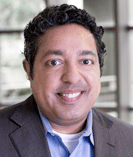
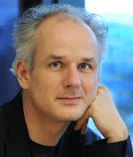
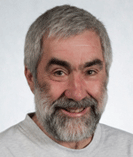
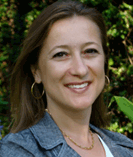
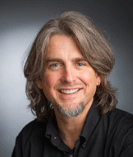
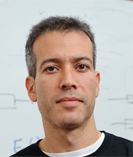
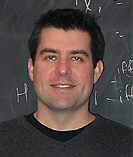
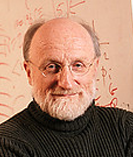
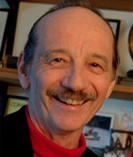
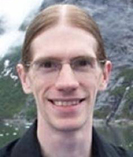
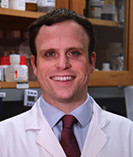
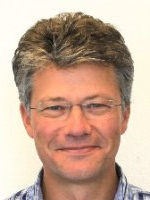
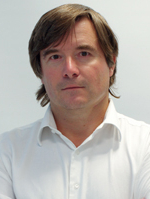



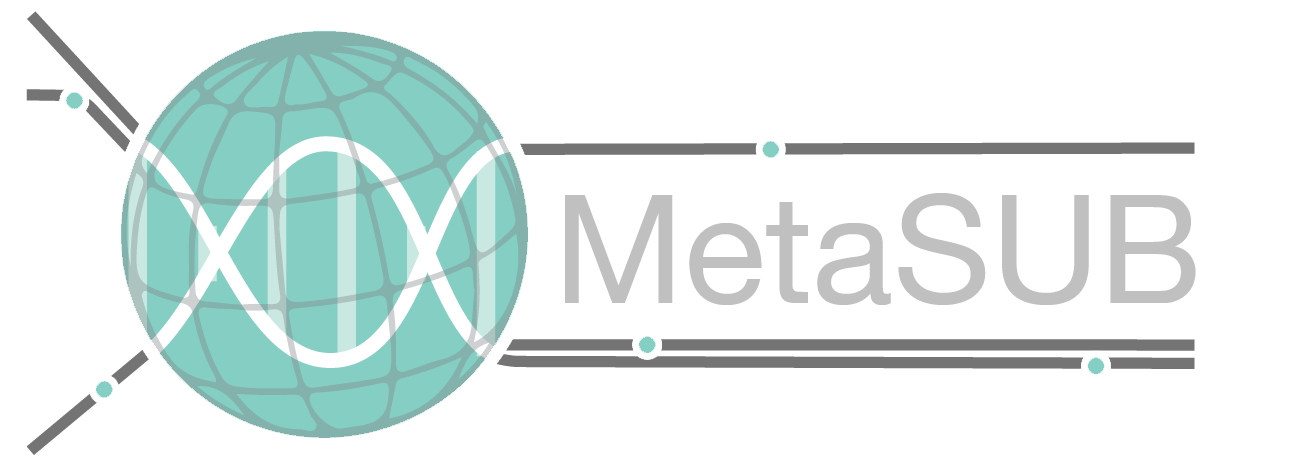

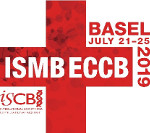



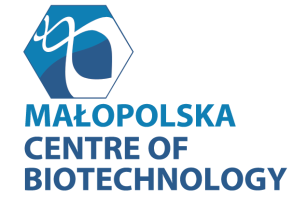

STAY CONNECTED
Tweet